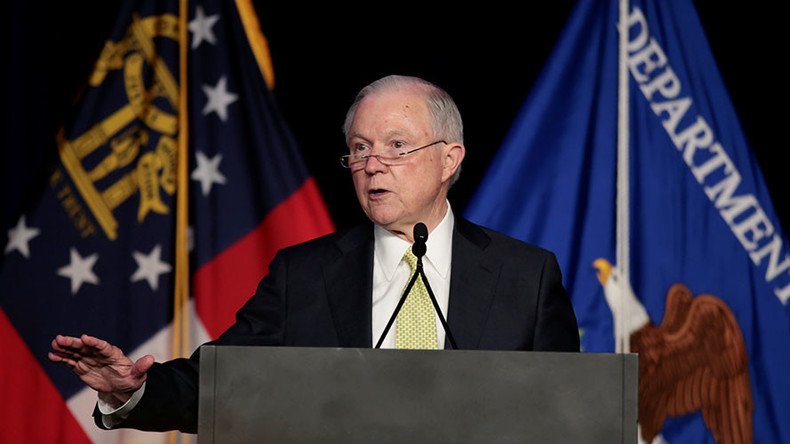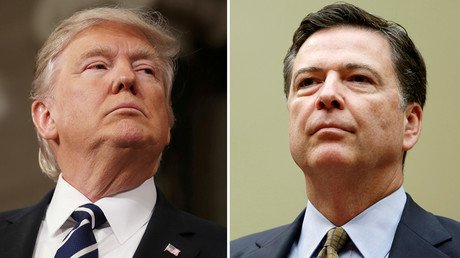DOJ bans Holder-era settlement payouts to 'slush fund' third parties

The US Justice Department will no longer pay settlements to third parties that were “neither the victims nor the parties of the lawsuit.” The funds were meant for community organizations but conservatives said only liberal organizations benefitted.
On Wednesday, Attorney General Jeff Sessions announced that the Justice Department would no longer allow federal prosecutors to make settlement deals with large companies to direct donations to third-party organizations “not directly harmed by the conduct.”
“When the federal government settles a case against a corporate wrongdoer, any settlement funds should go first to the victims and then to the American people – not to bankroll third-party special interest groups or the political friends of whoever is in power,” Sessions said, adding, “With this directive, we are ending this practice and ensuring that settlement funds are only used to compensate victims, redress harm, and punish and deter unlawful conduct.”
Beginning under former Attorney General Eric Holder, appointed by former President Barack Obama, the DOJ negotiated settlements that required the settling parties to pay funds to third-party community organizations, such as advocacy or housing groups.
The practice was criticized by Republicans, who referred to it as a “slush fund."
In January, House Judiciary Committee Chairman Bob Goodlatte (R-Virginia) introduced the Stop Settlement Slush Funds Act of 2017, which would prohibit the practice.
On Wednesday, Goodlatte applauded Sessions for his “commitment to restoring accountability to the Department of Justice.”
“The practice is wrong no matter which party is in power,” Goodlatte said in a statement. “Attorney General Session’s integrity stands in stark contrast to the behavior of Obama Administration officials who used their position to funnel billions of settlement dollars to their political allies.”
Proud of @HouseJudiciary work to shine light 🔦. ➡️ Goodlatte Commends DOJ Decision to Halt Settlement Slush Funds:https://t.co/52T9N3dyc5
— Bob Goodlatte (@RepGoodlatte) June 7, 2017
Goodlatte added that the House Judiciary Committee is examining evidence that the DOJ under Obama “went out of its way to keep settlement funds from going to conservative nonprofits.” He claims that the DOJ used mandatory donations to direct nearly a billion dollars to liberal activist groups.
After the 2008 financial crisis, the DOJ reached settlements with several banks, ranging from a $7 billion settlement with Citigroup to a $16.65 billion settlement with the Bank of America, the largest civil settlement with a single entity in American history.
Sessions reverses key platform of Obama's criminal justice legacy; announces new chapter in war on drugs
— RT America (@RT_America) May 12, 2017
Read more: https://t.co/qm47nNAaWUpic.twitter.com/rkUnpQ6UwG
As a part of those settlements, the banks were required to make donations to third-party groups, such as NeighborWorks America, a nonprofit organization that provides affordable housing and facilitates community development. The DOJ at the time said the money was being used for “foreclosure prevention and community redevelopment, legal assistance, housing counseling and neighborhood stabilization.”
In 2016, the DOJ reached a settlement with Volkswagen over allegations they were cheating emissions tests and deceiving customers. The settlement required the company to invest $2 billion in zero emissions technology over the next 10 years.
In a memo sent to all DOJ components and 94 US Attorney’s Offices, Sessions said the Department will end the practice “effective immediately.”
The policy will not apply to payments that directly remedy the harm that is sought to be redressed, including harm to the environment or from official corruption. Other exceptions include payments that are made on loans that provide restitution to the victim or payments that are made for legal services, restitution and forfeiture.













